
WHEN LUCAS ASICONA, a farmer and local historian living in the small city of Chajul in Guatemala's western highlands, decided to renovate his three-room adobe house in 2003, he could hardly have expected to make a major artistic discovery. In one of the rooms, which contained a kitchen and several beds, fragments of plaster had been falling off the walls, revealing patches of paintings underneath. As Asicona removed more plaster using a machete, he was stunned to find a tableau covering three walls. The artwork featured a range of people dressed in outfits that mixed elements associated with both the Spaniards, who colonized the territory in the early sixteenth century, and the area's Indigenous Ixil Maya. Researchers have come to recognize that the murals uncovered in Asicona's house, as well as in a number of other residences in Chajul, are the product of a complex cultural amalgamation that took place in the city after the Spaniards arrived.
On the room's western wall is a pair of seated musicians. One plays a short instrument, likely a flute or chirimía, an oboe-like woodwind introduced by the Spanish; the other beats a large rectangular drum. The musicians are trailed by a person who might be a dwarf carrying a long stick and they face a man who appears to be dancing while holding out a green bottle. The dwarf and the musicians wear typically Spanish attire-broadbrimmed hats, short mantles over one shoulder, caftans with puffed sleeves and ruffs, broad belts, slim trousers, and heeled shoes with pointed toes. By contrast, the dancer wears an outfit that blends Spanish trousers and heeled shoes with festive accoutrements associated with the Ixil Maya: a tasseled mantle made of feathers, a shirt with dangling strings, a long cloak sporting a representation of a white bird, and a decorative headdress.
Esta historia es de la edición January/February 2025 de Archaeology.
Comience su prueba gratuita de Magzter GOLD de 7 días para acceder a miles de historias premium seleccionadas y a más de 9,000 revistas y periódicos.
Ya eres suscriptor ? Conectar
Esta historia es de la edición January/February 2025 de Archaeology.
Comience su prueba gratuita de Magzter GOLD de 7 días para acceder a miles de historias premium seleccionadas y a más de 9,000 revistas y periódicos.
Ya eres suscriptor? Conectar
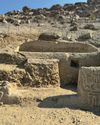
ORIGINS OF PERUVIAN RELIGION
While investigating looters' holes at the site of La Otra Banda in northern Peru's Zaña Valley, archaeologist Luis A. Muro Ynoñán of the Field Museum and the Pontifical Catholic University of Peru spotted carved blocks around seven feet below the surface.

ISLAND OF FREEDOM
Many of the enslaved Africans sent to Brazil beginning in 1549 were from what is now Angola, where one of the most widely spoken languages was Kimbundu.
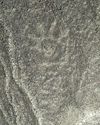
NAZCA GHOST GLYPHS
From the 1940s to the early 2000s, geoglyphs were discovered in the Nazca Desert of southern Peru depicting animals, humans, and other figures at the rate of 1.5 per year.
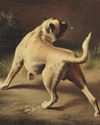
COLONIAL COMPANIONS
The ancestry of dogs in seventeenth-century Jamestown offers a window into social dynamics between Indigenous people and early colonists.
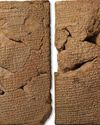
BAD MOON RISING
The British Museum houses around 130,000 clay tablets from ancient Mesopotamia written in cuneiform script between 3200 B.C. and the first century A.D.
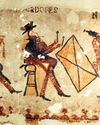
DANCING DAYS OF THE MAYA
In the mountains of Guatemala, murals depict elaborate performances combining Catholic and Indigenous traditions
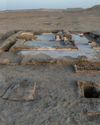
LOST GREEK TRAGEDIES REVIVED
How a scholar discovered passages from a great Athenian playwright on a discarded papyrus

Medieval England's Coveted Cargo
Archaeologists dive on a ship laden with marble bound for the kingdom's grandest cathedrals

Unearthing a Forgotten Roman Town
A stretch of Italian farmland concealed one of the small cities that powered the empire
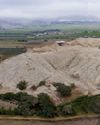
TOP 10 DISCOVERIES OF 2024
ARCHAEOLOGY magazine reveals the year's most exciting finds